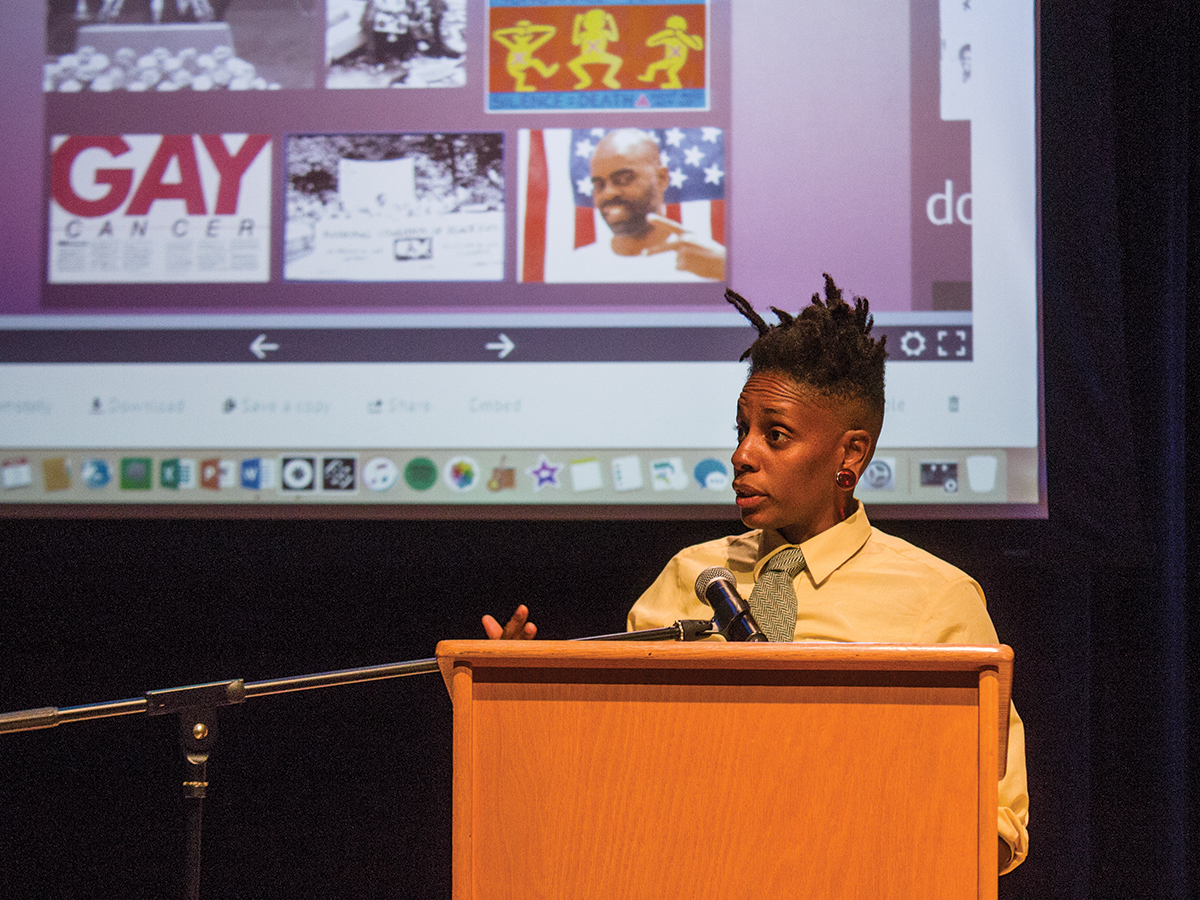
For most millennials, DJs are pretty standard fare, and in the world of music, practically ubiquitous. However, while DJs are practically ubiquitous now, the reality is that there was a complex musical evolution which led to the rise of DJs in the music industry, and on Thursday, Nov. 3, DJ Lynnee Denise gave a lecture exploring the rise of the pervasive art form, charting its rise in relation to Reagan’s “War on Drugs” policy, as well as its relationship to different forms of music: House, disco and hip-hop.
The event itself was packed full of students eagerly anticipating Denise’s lecture. With a pretty strong following, and an atmosphere of students willing to learn, it was clear that DJ Lynnee Denise was not a typical DJ.
And in truth, DJ Denise’s approach to DJing is rather unconventional: “The title DJ in front of my name implies decades of rigorous and focused study.” As evident in this statement, DJ Denise finds her line of work not just as an artistic endeavor, but as an overarching intellectual activity. She began the lecture by describing a term she coined to describe her intellectual and artistic interests: “DJ scholarship,” which, as described above was far more than about performing.
In a general sense, it is would be impossible to actually categorize the subject of this lecture. Combining musical history with political history, Denise explored the vast terrain that constitutes the political legacy of the 1980s through music.
DJing, said Denise, as a form of politico-music scholarship is constituted by four elements. “Digging in crates,” which means looking through musical archives for out-of-the-way records, and which functions as a form of historical reconstruction. Furthermore, reading liner notes, looking for samples and analyzing album covers all become different elements of DJing as an art form. For Denise these four elements specifically make DJ scholarship an intellectually stimulating activity.
In “The Beat Exchange,” Denise explored how, in the late ‘80s, hip-hop merged with disco and house electronic music. The narrative begins in 1982, when Reagan formally announced the War on Drugs, officially launching mass incarceration, as well as reductions to social programming in poorer communities, resulting in a disproportionate effect on the black community.
And yet, these years under Ronald Reagan, between 1981 and 1989 were incredibly fruitful times for music. She stated that “her work is framed by what happened in the 1980s” because, as a DJ, this musical flowering left a legacy of the violent political history underneath it. On this note, she turned to explaining the historical foundations of techno music which combined elements of African drumming, Motown and other musical traditions. Through studying the history of techno music from Detroit, Denise learned that this soundscape was shaped through a post-industrial urban atmosphere.
Furthermore, she expounded on what she found so compelling about her work. “Radio has created a pedestrian listener who is addicted to the familiar,” but her work in DJ scholarship challenges the very idea of “familiar.” By using DJ scholarship to challenge conventional narratives, Denise found that she can explore many different ideas and terrains.
By discovering such crucial connections between politics, history and music, DJ Lynnee Denise radically altered conventional ideas about musical evolution and artistic development. This lecture was an alternative view into why such forms of scholarship are not just academically important, but also hold relevance outside of the classroom.








